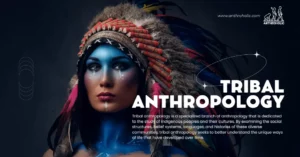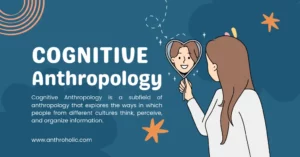AI Answer Evaluation Platform Live Now. Try Free Answer Evaluation Now
Elman Service
In the mid-20th century, as anthropologists sought to understand how societies evolved from small, kin-based groups to complex states, Elman R. Service offered a bold and lasting framework. His theories didn’t just organize human societies into categories-they reshaped how anthropologists analyze power, leadership, and inequality across cultures.

Best known for developing the band-tribe-chiefdom-state typology, Service’s work bridged anthropology and political theory, helping scholars trace the evolution of governance, authority, and social complexity. His research extended far beyond theory; through ethnographic fieldwork in Latin America, particularly among the Guaraní of Paraguay, Service grounded his ideas in lived experience.
Alongside contemporaries like Marshall Sahlins, Service became a leading voice in neo-evolutionary anthropology, offering models of social development that remain influential-even as they continue to spark debate.
Early Life and Education
Elman Rogers Service was born on May 18, 1915, in Tecumseh, Michigan, into a modest Midwestern background. His early years offered little indication that he would become one of the 20th century’s most influential anthropologists. Yet his life took a dramatic turn when, as a young man, he volunteered to fight in the Spanish Civil War on the side of the anti-fascist forces. This experience shaped his worldview and sharpened his interest in social organization, political ideology, and revolution.
After serving in World War II, Service returned to the U.S. determined to pursue an academic career. He studied anthropology at the University of Michigan, later earning his doctorate at Columbia University, which at the time was a hub for cutting-edge work in sociocultural theory. Under the influence of key scholars like Julian Steward, Service became immersed in questions of cultural evolution, adaptation, and the origins of political systems.
Academic Career and Fieldwork
Service’s academic career spanned prestigious institutions, including Columbia University, the University of Michigan, and the University of California, Santa Barbara. At each, he was not only a teacher but a builder of departments, known for his theoretical clarity and comparative approach.
His early fieldwork took him to Paraguay, where he studied the Guaraní people, a group with deep indigenous roots and a complex history of colonial contact. His research there focused on kinship, tribal organization, and leadership patterns, providing empirical support for his broader theories of sociopolitical evolution.
Service approached ethnographic research not as a descriptive exercise but as a foundation for modeling change. He saw fieldwork as a means to test and refine abstract ideas about how societies develop from small, egalitarian groups to stratified, centralized states. This ambition culminated in the creation of his most famous theoretical model: the band-tribe-chiefdom-state typology.
Major Theoretical Contributions
Elman R. Service’s most influential idea-one that still appears in textbooks today-is his band-tribe-chiefdom-state typology, introduced in his 1962 book Primitive Social Organization. This model was groundbreaking because it provided a comparative framework for understanding the evolution of political structures across human history.
The Typology:
- Bands: Small, kin-based, egalitarian groups often seen in hunter-gatherer societies.
- Tribes: Larger, still relatively egalitarian groups with more formalized leadership.
- Chiefdoms: Stratified societies led by centralized authority figures, with tribute and redistribution systems.
- States: Highly stratified, bureaucratically organized societies with law, taxation, and institutionalized power.
What made Service’s model so important was that it linked political organization to social and economic complexity, providing a roadmap for understanding how human societies transformed over time.
Later, in Origins of the State and Civilization (1975), he expanded on these ideas and introduced the “managerial benefits theory” of the state. Rather than seeing the rise of centralized power as merely coercive, Service argued that early leaders offered practical services-like irrigation, defense, and conflict resolution-that helped justify their authority.
He also emphasized the role of integration-how political systems function to hold diverse communities together, rather than just control them-marking a contrast to more conflict-centered theories.
Key Publications
Service authored or co-authored several key works that continue to influence anthropology and archaeology:
- Primitive Social Organization (1962): Introduced his sociopolitical typology.
- Profiles in Ethnology (1958): Co-authored with Marshall D. Sahlins, providing comparative analyses of global societies.
- Origins of the State and Civilization (1975): A deeper dive into the causes and consequences of early state formation.
- The Hunters (1966): A study of band-level societies and their adaptive strategies.
His work was widely respected for its clarity, accessibility, and utility for both anthropologists and archaeologists, particularly those studying early civilizations and prehistoric political systems.
Mapping the Path of Human Societies
Elman R. Service helped anthropology answer one of its most enduring questions: How do human societies evolve from small, kin-based groups into complex states?
Through both fieldwork and theory, Service illuminated the gradual shifts in political and social organization that characterize human history. His band-tribe-chiefdom-state model remains one of the most widely taught frameworks in anthropology, offering students and scholars a clear, comparative lens through which to study cultural change.
What set Service apart wasn’t just his intellectual rigor, but his willingness to engage with both ethnographic data and grand theory. He avoided overly deterministic models and instead emphasized flexibility, integration, and adaptation-a view that continues to influence anthropologists, archaeologists, and political theorists today.
References
- “Elman R. Service,” Online Archive of California. https://oac.cdlib.org/findaid/ark:/13030/c8sx6n3f/admin/
- “Elman Rogers Service,” Encyclopedia Britannica. https://www.britannica.com/biography/Elman-Rogers-ServiceEncyclopedia Britannica
- “Service, Elman Roger,” The Abraham Lincoln Brigade Archives. https://alba-valb.org/volunteers/elman-roger-service/
- “Elman R. Service,” iResearchNet Anthropology. https://anthropology.iresearchnet.com/elman-r-service/Anthropology Research Net
- “Elman R. Service,” Store norske leksikon. https://snl.no/Elman_R._ServiceStore norske leksikon
- “Elman R. Service,” New World Encyclopedia. https://www.newworldencyclopedia.org/entry/Elman_Rogers_Service




